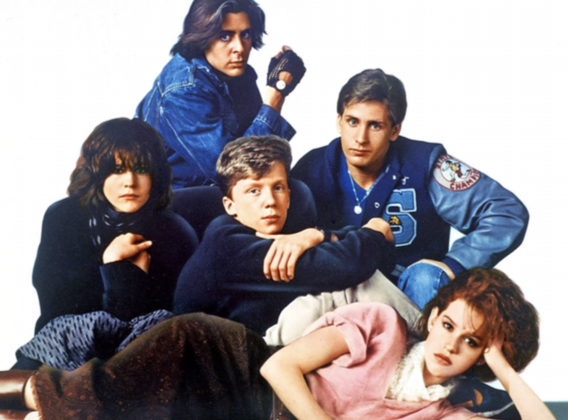The Breakfast Club Review: In 2019, the Pressures of High School Students in 1985 Still Remain
November 20, 2019
Many detractors of John Hughes’ The Breakfast Club would argue that the themes of the story are irrelevant in the 21st century, and that the five main characters merely represent inaccurate stereotypes. As a junior in high school, I couldn’t disagree more with this “problem,” as I related heavily with the pressures these kids face. While most teen movies tend to be littered with embarrassing performances, Hughes has an incredible talent for realistically depicting high schoolers. Brian, Andy, John, Claire, and Allison are certainly written to portray common teenage stereotypes, but the film knows this and uses it to humanize each character far beyond their respective tropes. This makes for highly engaging interactions between them as they go from not caring about each other to slowly becoming friends.
The Breakfast Club manages to have a perfect balance of comedy and sincerity. The tone shifts between these two multiple times throughout the film, sometimes very rapidly, but the dynamics of the characters and their situations make it feel natural. From the group laughing together to them yelling at each other, nothing ever feels fake. This is certainly elevated by the acting from each of the five students, as well as their verbally-unstable teacher, who conveys every line of dialogue exactly the way they needed to in order to make the script flow nicely.
My only major issues stem from the third act. Without spoiling anything, I felt as if the conclusions to both Claire’s and Allison’s character arcs were questionable. Some of the language used throughout the film also hasn’t aged well, at times feeling homophobic or sexist. As unfortunate as this is, it didn’t affect my enjoyment too heavily due to the difference in the values of the 80s versus today. Otherwise, I adored The Breakfast Club and deeply connected with these teens. This and Ferris Bueller’s Day Off prove that John Hughes did his homework and actually cared about representing the lives of teenagers sincerely.
Score: ★★★★

